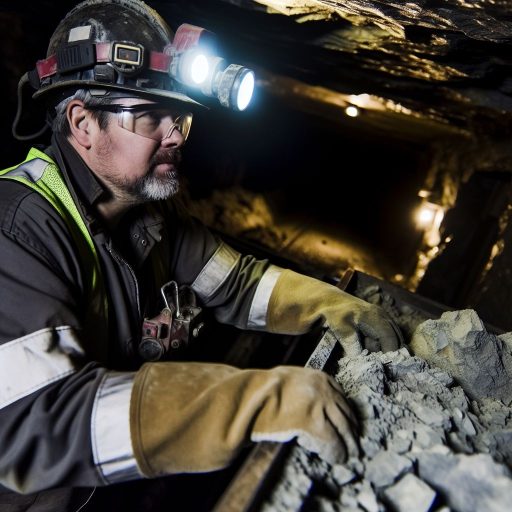Introduction:
The waste management industry plays a crucial role in keeping our environment clean and safe by properly collecting, transporting, and disposing of waste materials.
Waste management workers are on the front lines of this effort, facing numerous challenges and risks as part of their daily work.
Regulations are in place to protect these workers from potential hazards and ensure that waste is handled responsibly.
Importance of Regulations for Waste Management Workers
Regulations are essential for waste management workers to protect their health and safety while carrying out their duties.
These rules provide guidelines on handling different types of waste, using proper equipment, and following best practices to minimize environmental impact.
Additionally, regulations help prevent accidents and injuries in the workplace, ensuring that workers are adequately trained and informed about potential risks.
Impact of Regulations on Waste Management Workers
Throughout this blog post, we will explore the impact of regulations on waste management workers, including how these rules affect their daily tasks.
We will also discuss the importance of compliance and the challenges they face in meeting regulatory requirements.
By examining these key points, we can gain a better understanding of the role that regulations play in shaping the waste management industry and protecting those who work in it.
Occupational Safety and Health Administration (OSHA) regulations:
Overview of OSHA regulations in waste management industry
The Occupational Safety and Health Administration (OSHA) is responsible for ensuring safe and healthy working conditions for workers.
In the waste management industry, OSHA regulations are critical to protect employees from hazards.
Requirements for Personal Protective Equipment (PPE)
One of the key OSHA regulations in waste management is the requirement for Personal Protective Equipment (PPE).
This includes items such as gloves, goggles, and protective clothing to ensure workers are protected from exposure to harmful substances.
Training and certification requirements for workers
OSHA also mandates that workers in the waste management industry receive proper training and certification to safely perform their jobs.
This includes training on how to handle hazardous materials, operate equipment, and respond to emergencies.
- Workers must undergo training in handling hazardous waste materials.
- Certifications are required for operating machinery such as forklifts and cranes.
- Emergency response training is essential for dealing with accidents or spills.
Importance of OSHA Compliance in Waste Management
OSHA regulations play a crucial role in ensuring the safety and well-being of waste management workers.
By complying with these regulations, employers can create a safe working environment and protect their employees from potential risks.
Environmental Protection Agency (EPA) regulations:
1. The EPA sets guidelines for how waste should be managed to protect human health and the environment.
2. These regulations cover a wide range of waste types, including hazardous, solid, and medical waste.
Transform Your Career Today
Unlock a personalized career strategy that drives real results. Get tailored advice and a roadmap designed just for you.
Start Now3. Waste management workers must be aware of these regulations to ensure compliance with the law.
4. The EPA also provides guidance on best practices for waste management to minimize environmental impact.
Compliance with hazardous waste disposal regulations
1. Hazardous waste disposal regulations are designed to prevent harm to human health and the environment.
2. Waste management workers must follow strict procedures for handling, storing, and disposing of hazardous waste.
3. Failure to comply with these regulations can result in fines, lawsuits, or even criminal charges.
4. Training programs are available to help waste management workers understand and comply with hazardous waste disposal regulations.
Monitoring and reporting requirements for waste facilities
1. Waste facilities are required to monitor and report on their waste management activities to the EPA.
2. This includes tracking the types and amounts of waste generated, as well as disposal methods used.
3. Regular inspections are conducted to ensure that waste facilities are following regulations and complying with reporting requirements.
4. Non-compliance with monitoring and reporting requirements can lead to penalties and sanctions from the EPA.
Overall, waste management workers must be well-versed in EPA regulations to protect both public health and the environment.
By following these regulations, waste management workers can ensure the safe and proper handling of waste materials.
Discover More: Best Moving Techniques for Fragile and Valuable Items
Department of Transportation (DOT) regulations:
– Transportation of hazardous waste regulations
– Licensing and permitting requirements for waste transportation vehicles
– Recordkeeping and documentation requirements for waste transport
The Department of Transportation (DOT) has set regulations that specifically govern the transportation of hazardous waste.
Waste management workers who are responsible for transporting hazardous materials must adhere to these regulations to ensure safety and compliance.
Transportation of hazardous waste regulations
Waste management workers must comply with specific regulations when transporting hazardous waste.
Showcase Your Business Today
Reach thousands of readers actively exploring professional services. Publish your business profile and grow your audience now.
Publish NowThese regulations are in place to ensure the safe handling and transportation of dangerous materials.
Workers must be trained on how to properly handle hazardous waste and follow specific protocols to minimize the risk of accidents and spills.
Licensing and permitting requirements for waste transportation vehicles
In order to transport hazardous waste, waste management workers must obtain the necessary licenses and permits for their vehicles.
These requirements are put in place to ensure that only qualified individuals with the right qualifications are responsible for transporting hazardous materials.
Strict regulations govern who is eligible to transport hazardous waste, and workers must adhere to these rules to avoid fines or penalties.
Recordkeeping and documentation requirements for waste transport
Waste management workers are required to maintain detailed records and documentation of the transportation of hazardous waste.
This includes documenting the type of waste being transported, the quantity of waste, the destination of the waste, and any safety precautions taken during transport.
This information must be readily available for inspection by regulatory agencies to ensure compliance with DOT regulations.
It is essential for waste management workers to stay up-to-date on any changes to DOT regulations to maintain compliance and safety in their operations.
Discover More: The Future of Assembly Jobs in the USA
State and local regulations:
State and local regulations play a crucial role in waste management operations.
These regulations affect workers in various ways.
Let’s delve into how these regulations impact waste management professionals:
Variances in regulations from state to state
Waste management workers must be well-versed in the specific regulations of the state in which they operate.
Each state has its own set of rules governing waste management practices.
This includes disposal methods, recycling requirements, and environmental protection standards.
These variations can pose challenges for workers.
They may need to adapt their processes and procedures based on the specific regulations of the state they are working in.
This can require additional training and certification to ensure compliance with state laws.
Permitting requirements for waste management facilities
One of the key regulations that waste management workers must adhere to is obtaining the necessary permits for their facilities.
This includes permits for landfills, recycling centers, composting facilities, and hazardous waste storage sites.
Permitting requirements ensure that waste management facilities operate in a manner that is safe for workers.
They also protect the environment and the surrounding community.
Failure to obtain the proper permits can result in fines, penalties, and even the shutdown of operations.
Compliance with local ordinances and zoning laws
In addition to state regulations, waste management workers must also comply with local ordinances and zoning laws.
Local regulations may impose additional restrictions on waste management activities.
This includes noise levels, operating hours, and waste storage limits.
Zoning laws dictate where waste management facilities can be located.
They ensure that these facilities are situated in appropriate areas.
These laws help minimize the impact on residential neighborhoods and environmentally sensitive areas.
Compliance with these laws is essential to prevent conflicts with local authorities and residents.
Waste management workers must navigate a complex regulatory landscape.
This landscape varies from state to state and locality to locality.
Understanding and adhering to these regulations is essential.
It ensures the safe and effective management of waste while protecting the environment and public health.
Explore Further: The Importance of Attention to Detail for Assemblers
Health and Safety Regulations
Waste management workers are exposed to various hazards in their line of work.
Health and safety regulations play a crucial role in ensuring their well-being.
Exposure to Hazardous Substances Regulations
One of the key regulations that impact waste management workers is the exposure to hazardous substances regulations.
These regulations aim to protect workers from the harmful effects of chemicals and toxins present in waste materials.
Showcase Your Business Today
Reach thousands of readers actively exploring professional services. Publish your business profile and grow your audience now.
Publish NowWorkers in this industry are at risk of exposure to harmful substances such as asbestos, lead, and mercury.
These substances can have serious health consequences if proper precautions are not taken.
Employers are required to provide workers with information on hazardous materials.
Training on how to handle them safely and personal protective equipment (PPE) are necessary to minimize exposure risks.
Medical Surveillance Requirements for Waste Management Workers
Another aspect of health and safety regulations that directly affects waste management workers is medical surveillance requirements.
These requirements are put in place to monitor workers’ health and detect any adverse effects from their work environment.
Regular medical check-ups are essential for waste management workers.
These check-ups ensure early detection of any health issues related to their exposure to hazardous substances.
This helps in providing timely medical intervention and preventing long-term health problems.
Employers are responsible for facilitating and covering the costs of medical surveillance for their workers.
This is to comply with regulations and maintain a safe work environment.
Emergency Response and Spill Cleanup Protocols
In the event of an emergency or accidental spillage of hazardous materials, waste management workers must follow strict emergency response and spill cleanup protocols.
These protocols minimize risks to their health and safety.
Proper training on emergency response procedures is essential for waste management workers.
This includes evacuation plans and spill containment measures to help them act swiftly and effectively in crisis situations.
Regular drills and exercises are conducted to ensure workers are well-prepared to handle emergencies.
These practices effectively reduce the impact on their health and the environment.
Compliance with these regulations is crucial in safeguarding the health and safety of waste management workers.
Such compliance helps in preventing accidents, injuries, and long-term health issues related to their line of work.
Gain More Insights: Essential Skills Every Professional Janitor Should Have

Waste segregation and disposal regulations:
Proper handling of different types of waste materials.
Recycling and composting regulations.
Landfill regulations and waste disposal limitations.
Proper handling of different types of waste materials
Waste management workers must comply with regulations that require separate handling of various types of waste materials.
Segregation helps in preventing cross-contamination and allows for efficient recycling and disposal processes.
Workers need to be trained on how to identify and categorize different waste streams accurately to ensure proper disposal.
Recycling and composting regulations
Regulations governing recycling and composting play a crucial role in waste management practices.
Workers must follow guidelines on how to collect, sort, and process recyclable materials to promote sustainability.
Composting regulations focus on organic waste management, aiming to reduce landfill waste and promote environmental conservation.
Landfill regulations and waste disposal limitations
Landfill regulations set standards for the operation and maintenance of waste disposal facilities.
Workers in waste management must adhere to guidelines on waste placement, cover materials, and environmental protection measures.
Regulations also impose limits on the types and quantities of waste that can be disposed of in landfills to control pollution and minimize environmental impact.
Role of Waste Management Workers
Waste management workers play a vital role in ensuring compliance with regulations that govern waste segregation, recycling, composting, and landfill disposal.
By following these regulations, workers can contribute to sustainable waste management practices and protect the environment for future generations.
Enforcement and penalties:
Enforcement of waste management regulations is crucial to ensure the safety of workers and the environment.
Non-compliance with these regulations can have serious consequences for waste management workers and the community as a whole.
Regulatory agencies play a vital role in monitoring and inspecting waste management facilities to ensure compliance with the rules and regulations put in place.
One of the key consequences of non-compliance with waste management regulations is the risk of exposure to hazardous materials.
Waste management workers are constantly exposed to various types of waste, some of which may be toxic or harmful to their health.
Failure to comply with regulations on handling and disposal of waste can result in serious health issues for workers.
Showcase Your Business Today
Reach thousands of readers actively exploring professional services. Publish your business profile and grow your audience now.
Publish NowRegulatory agencies conduct regular inspections of waste management facilities to ensure that they are operating in compliance with the regulations.
These inspections help identify any potential risks or violations and allow for corrective action to be taken promptly.
Monitoring and inspections by regulatory agencies are crucial for maintaining the safety of waste management workers and the environment.
Violating waste management regulations can lead to fines and penalties for individuals or companies responsible for the violations.
The fines and penalties are imposed to deter non-compliance and ensure that the regulations are followed diligently.
Fines can range from monetary penalties to suspension or revocation of permits, depending on the severity of the violation.
It is essential for waste management workers to be aware of and comply with regulations to avoid facing enforcement actions and penalties.
By following the regulations, workers can protect themselves, their colleagues, and the environment from potential harm.
Compliance with waste management regulations is not only a legal requirement but also a moral obligation to ensure the well-being of all stakeholders involved.
Waste Management Regulations
Waste management workers must abide by a set of regulations.
These regulations ensure safety and environmental protection in their work.
Key regulations include the proper handling of hazardous materials.
Additionally, waste segregation and personal protective equipment requirements are vital.
These measures support the well-being of workers and the community.
Strict adherence to regulations is crucial.
They play a significant role in preventing potential accidents.
Health hazards and environmental pollution can be mitigated through these rules.
By following these rules, waste management workers contribute to a cleaner environment.
They promote safety for everyone involved.
Waste management regulations are essential requirements.
Workers in this industry must comply to protect the environment.
Let us emphasize the importance of strict compliance.
This ensures the well-being of workers and our planet’s preservation.
Additional Resources
Americans with Disabilities Act Title II Regulations | ADA.gov
Environmental Scientists and Specialists – Bureau of Labor Statistics
[E-Books for Sale]
The Big Book of 500 High-Paying Jobs in America: Unlock Your Earning Potential
$19.99 • 500 High-Paying Jobs • 330 pages
Explore 500 high-paying jobs in America and learn how to boost your career, earn more, and achieve success!
See All 500 High-Paying Jobs of this E-Book
1001 Professions Without a Degree: High-Paying American Jobs You Can Start Now
$19.99 • 1001 Professions Without a Degree • 174 pages
Discover 1001 high-paying jobs without a degree! Unlock career tips, skills, and success strategies for just $19.99!




